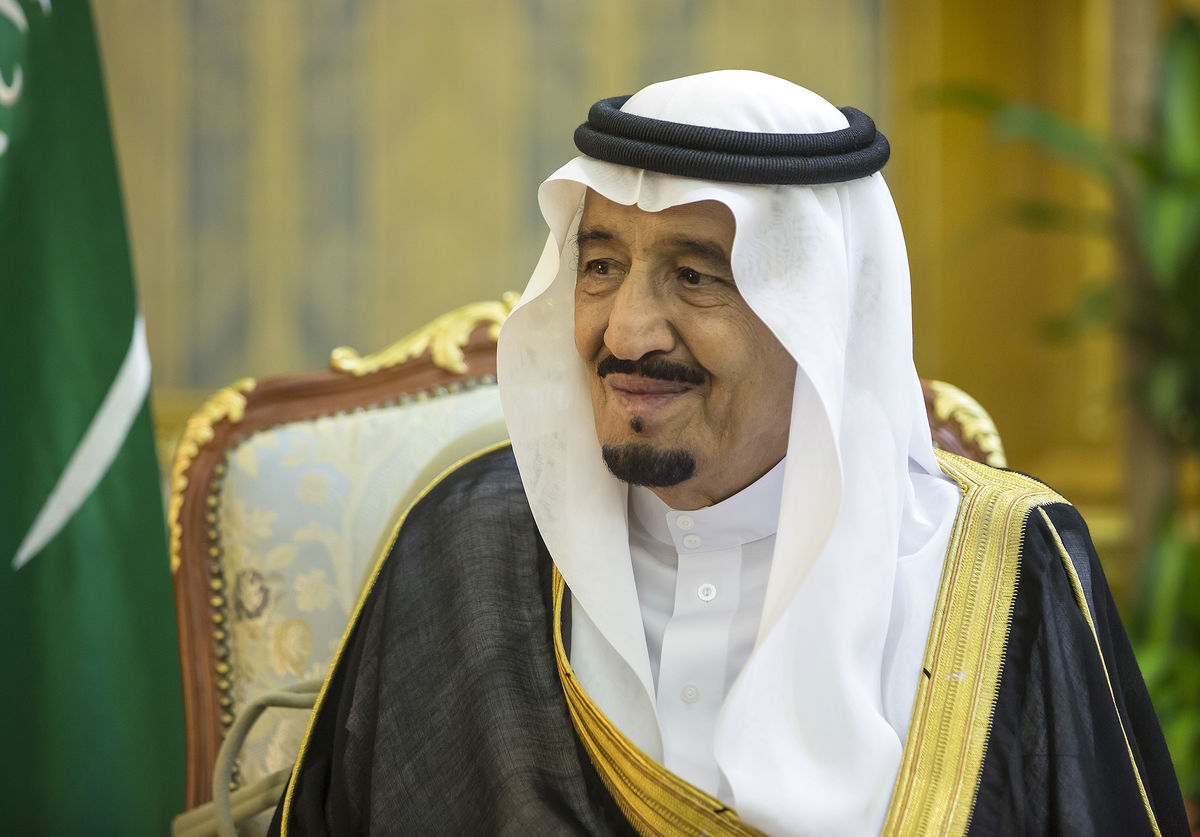Salman becomes Saudi monarch after death of King Abdullah

By Bloomberg
Salman Bin Abdulaziz Al Saud ascended to the throne of Saudi Arabia after the death of his half-brother King Abdullah, taking the helm of the biggest Arab economy amid political turmoil in the Middle East and tumbling oil prices.
King Abdullah, who was born in 1924, died at 1 a.m. in Riyadh. The royal court said Salman, 79, was named king and Prince Muqrin, 69, another half-brother, has been chosen as Crown Prince. Salman appointed Prince Mohammed bin Nayef, the country’s Interior Minister, as deputy crown prince and his son Mohammed bin Salman as defense minister, Saudi State Television reported.
Salman was named as crown prince in 2012 and takes over as the world’s top oil exporter faces a growing threat of militant attacks at home after joining the U.S.-led military coalition against Islamic State in Syria. Regional rival Iran and its Shiite allies are gaining influence, while plunging oil prices are curbing Saudi Arabia’s capacity to invest.
“Salman has long been seen as a moderate or a reformer in Saudi terms,” said James Dorsey, a senior fellow in international studies at Nanyang Technological University in Singapore. “There is every reason to believe that Abdullah appointed him crown prince in the belief that he would continue the late king’s policies.”
Younger Generation
Salman said in a speech broadcast on Saudi State Television that he would maintain the strategies of his predecessor. The appointment of Prince Mohammed bin Nayef as second in line to the throne moves the succession to a younger generation of Saudi princes. Prince Mohammed was appointed interior minister in November 2012.
Abdullah, whose funeral will be held in Riyadh later on Friday, became Saudi Arabia’s sixth king in August 2005 and was de facto ruler for almost a decade before that, after King Fahd was incapacitated by a stroke in 1996. His death is the third among senior members of the ruling family since 2011. Crown Prince Sultan bin Abdulaziz Al Saud died in October that year and his successor, Prince Nayef bin Abdulaziz Al Saud, died nine months later.
Oil prices surged after the announcement of the king’s death. West Texas Intermediate for March delivery gained as much as $1.45 before paring some gains to trade at $46.75 at 9:45 a.m. in London. Crude prices have plunged more than 50 percent since June, and Saudi Arabia led a group of OPEC members resisting calls for production cuts to halt the decline.
Abdullah’s policies helped Saudi Arabia remain mostly unscathed by the Arab Spring revolts. He allocated $130 billion in social spending in February and March of 2011 as popular uprisings spread across Tunisia, Egypt and other regional countries, toppling longtime leaders.
Regional Tensions
The uprisings led to rifts between Saudi Arabia and its longtime U.S. ally. Abdullah backed the military ouster of a Muslim Brotherhood government in Egypt, and Saudi leaders criticized the U.S. decision to pull back from strikes against President Bashar al-Assad in Syria. Abdullah had earlier urged the U.S. to take military action against Iran, telling American diplomats to “cut off the head of the snake,” according to diplomatic cables released by WikiLeaks, an anti-secrecy group that publishes leaked documents on its website, in 2010.
The emergence of Islamic State, which has seized control of parts of Iraq and Syria and declared a caliphate there, helped repair ties, with Saudi Arabia among the Arab nations to join airstrikes against the group in Syria.
“There have been tensions between the countries,” said Jon B. Alterman, director of the Middle East program at the Center for Strategic and International Studies in Washington. “I don’t think this transition will either resolve the tensions or result in a fundamental rupture.”
Salman is well known to U.S. officials from his long role as governor of Riyadh, Alterman said. During his tenure, Riyadh was transformed from a desert oasis into a thriving modern city of 5 million people, with office towers, sprawling villas and shopping malls.
Immediate Challenges
The new king will face an immediate foreign-policy challenge in neighboring Yemen, whose President Abdurabuh Mansur Hadi, a close Saudi ally, announced his resignation on Thursday after his palace was seized by Shiite rebels. He also faces challenges at home, including high youth unemployment.
Salman was “very close to the king in terms of all the important relationships, and in particular the U.S. relationship,” said Ford M. Fraker, who served as U.S. ambassador to Saudi Arabia from April 2007 to April 2009.
“He’s quite decisive,” he said. “He’s a very imposing figure, he’s tall and powerful. He kind of look like a throwback to the desert warrior image that his father very much was in every way.”
Here we are to serve you with news right now. It does not cost much, but worth your attention.
Choose to support open, independent, quality journalism and subscribe on a monthly basis.
By subscribing to our online newspaper, you can have full digital access to all news, analysis, and much more.
You can also follow AzerNEWS on Twitter @AzerNewsAz or Facebook @AzerNewsNewspaper
Thank you!
